You'll love these top 5 eco-friendly home insulation options that boost energy efficiency and reduce your environmental impact. Recycled denim insulation offers excellent sound dampening and safety. Sheep's wool naturally wicks moisture and cleans the air. Cellulose, made from recycled paper, provides great air sealing properties. Cork insulation boasts impressive durability and pest resistance. Hemp insulation excels in breathability and mold resistance. These sustainable alternatives not only keep your home cozy but also contribute to a greener planet. Each option has unique benefits that cater to different needs and preferences, so you're sure to find the perfect fit for your home.
Recycled Denim Insulation

While many people think of insulation as fiberglass or foam, recycled denim insulation offers an eco-friendly alternative. This innovative material is made from post-consumer denim jeans and other cotton textiles that would otherwise end up in landfills.
It's a sustainable choice that helps reduce waste and conserve resources.
You'll find that recycled denim insulation performs just as well as traditional options, with excellent sound-dampening properties and an R-value comparable to fiberglass.
It's also safer to handle, as it doesn't contain harmful chemicals or irritants. You won't need protective gear when installing it, making it a DIY-friendly option.
One of the biggest advantages of denim insulation is its breathability. It allows moisture to escape, reducing the risk of mold and mildew growth in your walls.
It's also naturally fire-resistant and treated with borates to deter pests.
While it may cost more upfront than fiberglass, denim insulation can lead to long-term energy savings.
It's a durable option that won't settle or lose its insulating properties over time, ensuring your home stays comfortable for years to come.
Sheep's Wool Insulation
Harnessing the power of nature, sheep's wool insulation offers a sustainable and effective option for eco-conscious homeowners. This renewable material is naturally fire-resistant, moisture-wicking, and excellent at regulating temperature.
You'll find that sheep's wool insulation can absorb and release moisture without compromising its thermal performance, helping to maintain a comfortable indoor environment.
One of the standout features of sheep's wool is its ability to purify air by absorbing and neutralizing harmful pollutants like formaldehyde, nitrogen dioxide, and sulfur dioxide. This natural air-cleaning property can greatly improve your home's indoor air quality.
Additionally, sheep's wool is biodegradable and requires minimal processing, reducing its overall environmental impact.
Installation of sheep's wool insulation is straightforward and doesn't require protective gear, as it's non-irritating to skin and lungs. It's also pest-resistant due to its natural lanolin content.
While it may have a higher upfront cost compared to some synthetic options, sheep's wool's durability and long-lasting performance make it a cost-effective choice in the long run.
Cellulose Insulation
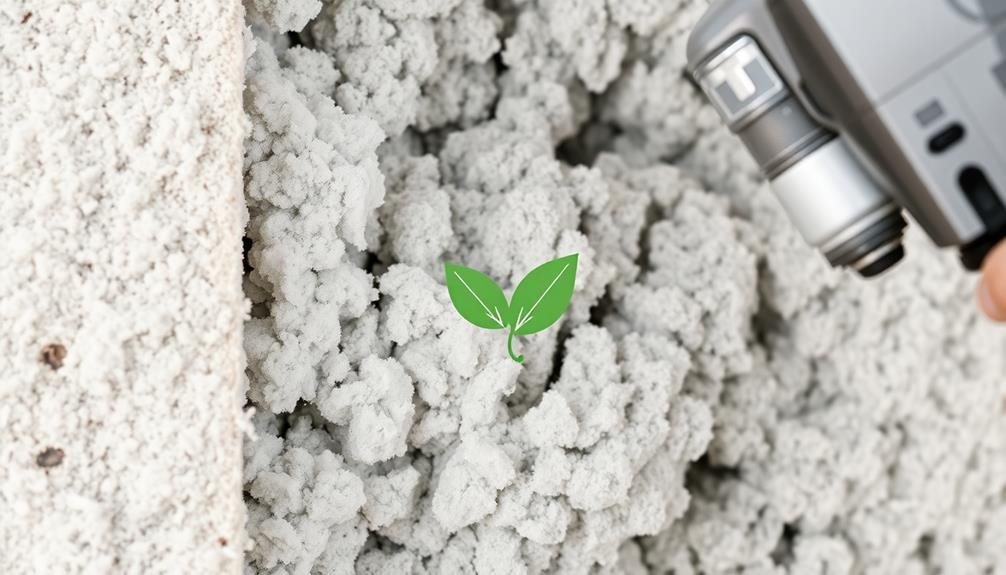
Cellulose insulation offers another eco-friendly alternative for homeowners looking to reduce their environmental impact. Made primarily from recycled paper products, this insulation option is both sustainable and effective.
You'll find that cellulose insulation is treated with non-toxic borate compounds to resist fire, mold, and pests.
One of the biggest advantages of cellulose insulation is its superior ability to fill gaps and crevices, providing excellent air sealing properties. This can lead to improved energy efficiency in your home, potentially lowering your heating and cooling costs.
It's also relatively easy to install, especially in existing homes, as it can be blown into wall cavities and attics without major renovations.
When considering cellulose insulation, you'll want to guarantee proper installation to avoid settling issues. While it's denser than fiberglass, it can still settle over time if not installed correctly.
You'll also need to be aware that cellulose insulation can absorb moisture, so proper vapor barriers are essential.
Despite these considerations, cellulose remains an excellent choice for those seeking an eco-friendly insulation option that performs well and contributes to a more sustainable home environment.
Cork Insulation
As a natural and renewable resource, cork insulation stands out among eco-friendly options for home insulation. Harvested from the bark of cork oak trees, this material offers excellent thermal and acoustic properties while being biodegradable and recyclable.
You'll appreciate its durability, as cork insulation can last up to 50 years without degrading.
Cork insulation boasts several advantages that make it an attractive choice for environmentally conscious homeowners:
- Fire resistance: Cork's natural composition makes it highly resistant to flames, adding an extra layer of safety to your home.
- Pest deterrent: The presence of a substance called suberin in cork repels insects and rodents, protecting your insulation from unwanted visitors.
- Moisture resistance: Cork's cellular structure allows it to repel water while still remaining breathable, preventing mold and mildew growth.
When installing cork insulation, you can choose between panels or loose-fill options. The panels are easy to handle and install, while loose-fill cork can be blown into hard-to-reach spaces.
Although cork insulation may have a higher upfront cost compared to some alternatives, its longevity and performance make it a worthwhile investment for your eco-friendly home.
Hemp Insulation
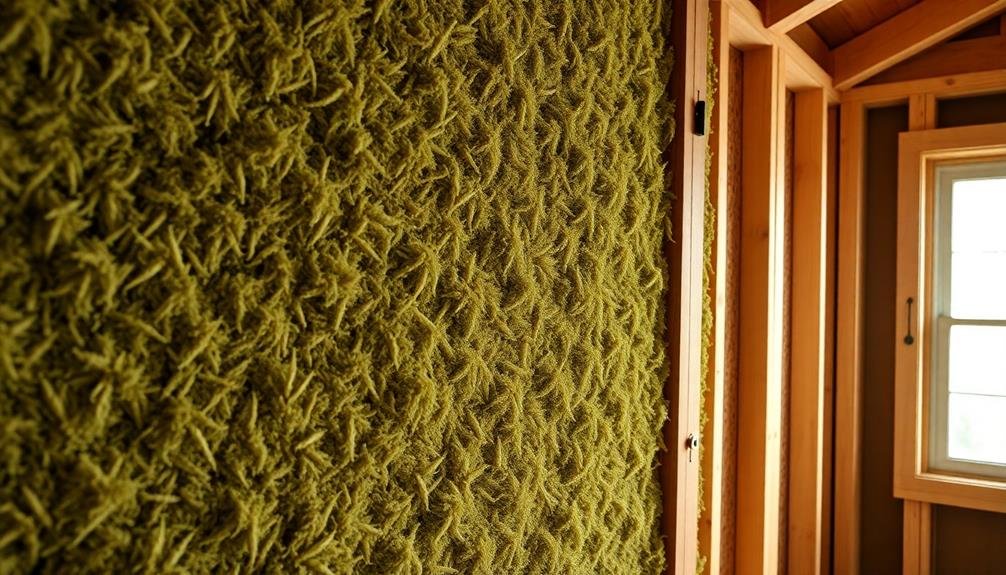
Hemp insulation offers another excellent eco-friendly alternative for home insulation. You'll find that this sustainable material is made from the inner fibers of the hemp plant, which grows quickly and requires minimal pesticides. Hemp insulation boasts impressive thermal and acoustic properties, making it an effective choice for maintaining a comfortable home environment.
When you opt for hemp insulation, you're choosing a product that's biodegradable, non-toxic, and resistant to mold and pests. It's also highly breathable, helping to regulate moisture levels in your home. Installation is straightforward, and you can handle it yourself or hire professionals.
Here's a quick comparison of hemp insulation with other eco-friendly options:
| Feature | Hemp | Cork | Sheep's Wool |
|---|---|---|---|
| R-value per inch | 3.5 | 3.6 | 3.8 |
| Fire resistance | Good | Good | Excellent |
| Pest resistance | High | High | Moderate |
| Moisture control | High | High | High |
| Cost per sq ft | $1-2 | $3-5 | $2-3 |
While hemp insulation may have a slightly higher upfront cost than traditional options, you'll benefit from long-term energy savings and a reduced carbon footprint.
Frequently Asked Questions
How Does Eco-Friendly Insulation Compare to Traditional Options in Terms of Cost?
You'll find eco-friendly insulation's upfront costs are often higher than traditional options. However, you're likely to save money in the long run due to improved energy efficiency and lower utility bills. It's an investment that pays off.
Can Eco-Friendly Insulation Materials Be Used in All Climate Zones?
You'll be pleased to know that eco-friendly insulation can be used in all climate zones. It's versatile and adaptable, offering effective insulation for both hot and cold climates. You'll find options suitable for your specific regional needs.
Are There Any Health Benefits Associated With Using Natural Insulation Materials?
Yes, you'll enjoy health benefits from natural insulation materials. They're often free of harmful chemicals, improve indoor air quality, and regulate humidity. You'll breathe easier and may experience fewer respiratory issues or allergic reactions.
What Is the Average Lifespan of Eco-Friendly Insulation Compared to Conventional Types?
You'll find eco-friendly insulation often lasts as long as conventional types, typically 20-30 years. Some natural materials like cork or wool may even outlast traditional options. Regular maintenance can extend the lifespan of any insulation you choose.
How Does Eco-Friendly Insulation Impact a Home's Resale Value?
You'll likely see a boost in your home's resale value with eco-friendly insulation. It's attractive to buyers who value energy efficiency and sustainability. You're making a smart investment that can pay off when it's time to sell.
In Summary
You've now explored five fantastic eco-friendly insulation options for your home. Whether you choose recycled denim, sheep's wool, cellulose, cork, or hemp, you're making a sustainable choice that'll benefit both your home and the environment. These materials offer excellent insulation properties while reducing your carbon footprint. Don't hesitate to consult with a professional to determine which option best suits your specific needs. By selecting one of these eco-friendly alternatives, you're taking a significant step towards a greener, more energy-efficient home.
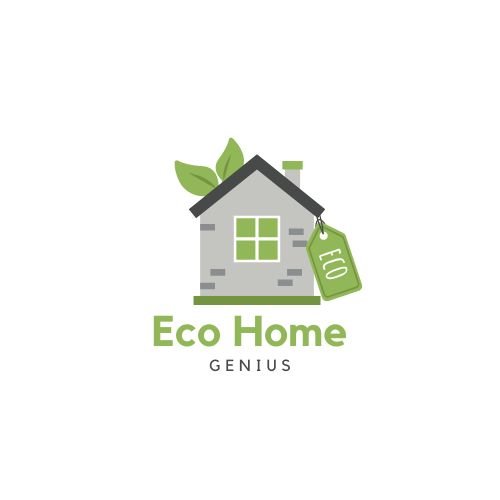

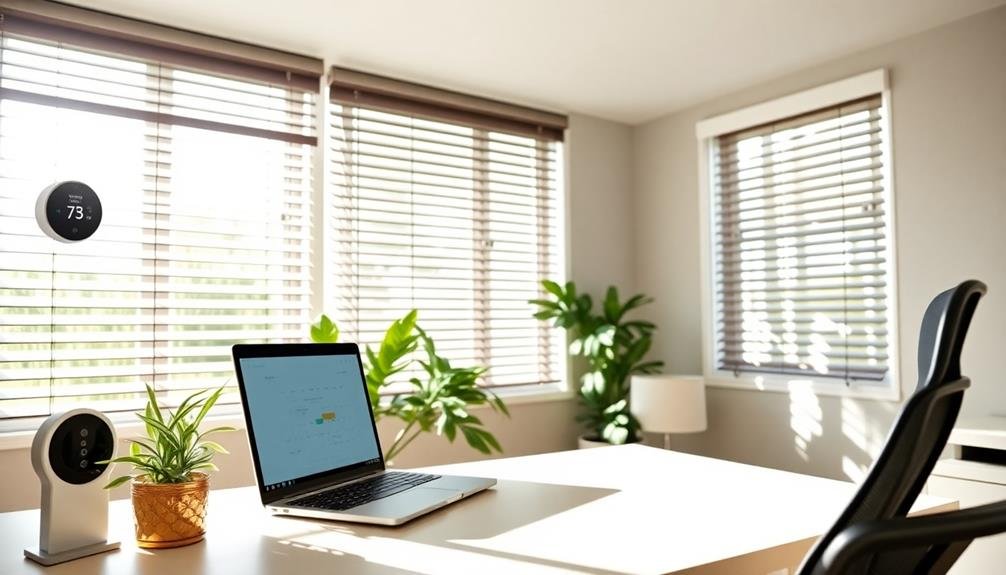
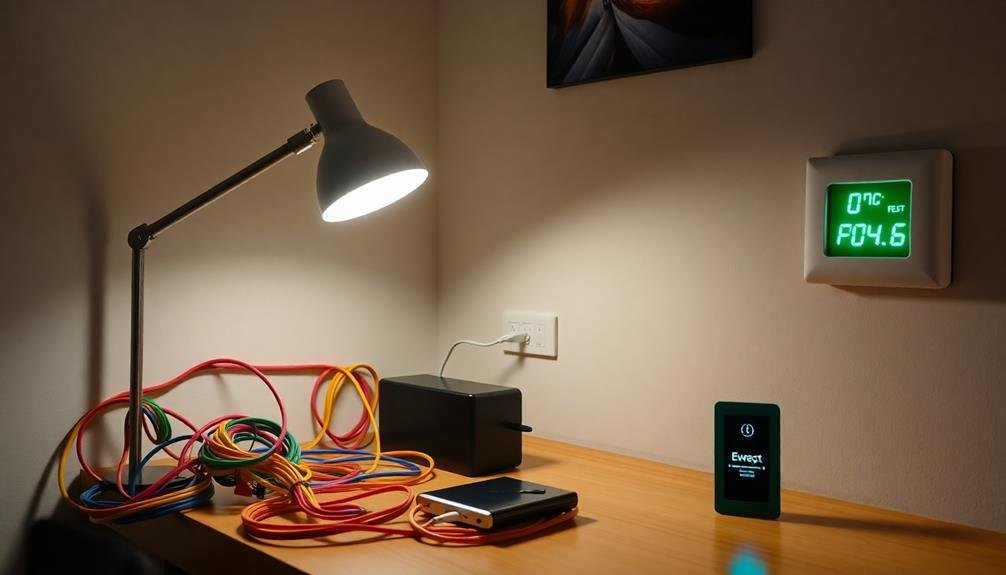

Leave a Reply